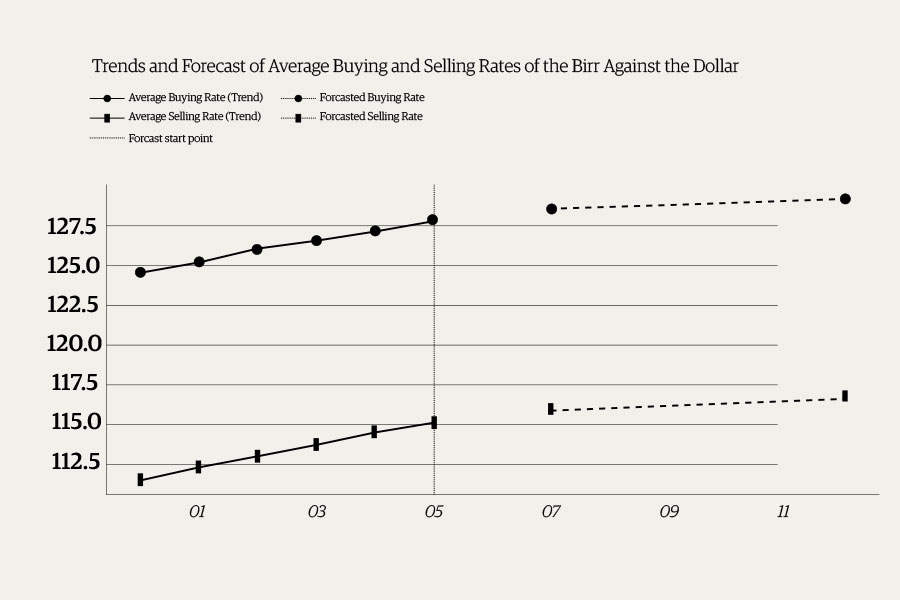
Aug 30 , 2025
By Diane Coyle
The concept of GDP, now ubiquitous, was only introduced into the lexicon in the 1930s. Its wartime adoption was not abstract. Reliable economic numbers helped the US and UK outproduce rivals. During World War II, meticulous national accounting became a strategic weapon. For decades, the Soviet Union boasted robust economic growth by tallying only goods, while excluding services. In this commentary provided by Project Syndicate (PS), Diane Coyle, a professor of public policy at the University of Cambridge, recalled how the Soviet collapse revealed that numbers, if misused, can mask more than they reveal.
With gross domestic product (GDP) and employment figures dominating political debates, it is easy to forget that they are hardly timeless truths. How we measure progress has shifted dramatically over time.
The Physiocrats, 18th-century French economists who viewed agriculture as the source of all wealth, considered farms' output to be the most important economic indicator. The Soviet Union, for its part, focused exclusively on goods production and ignored services altogether. What has remained constant, however, is that statistics, true to their name, have always been tools of the state.
The Domesday Book of 1086, commissioned by William the Conqueror, served as an early economic survey cataloguing the land, property, and resources of his newly acquired English realm. Centuries later, William Petty's 1690 book "Political Arithmetick" sought to demonstrate that Britain's tax base was strong enough to sustain its war against France.
The modern concept of GDP was developed in the 1930s and became firmly established during World War II, as it served a national purpose. While Germany was working on its own methods for gauging economic capacity, the United States (US) and the United Kingdom (UK) gained a decisive strategic edge by being the first to define total output and compile reliable statistics. This enabled the Allies to maximise production and manage the sacrifices required of their citizens more effectively.
Greece's 2012 debt crisis highlights the risks associated with unreliable economic data. For years, the country relied on inflated GDP figures and understated debt levels to borrow cheaply on international markets. Eurostat, the European Union's statistical arm, and others cautioned that Greece's statistics were misleading, but their warnings were largely unheeded, not least because banks were eager to profit from loan commissions.
The outcome was inevitable. It led to an emergency International Monetary Fund (IMF) bailout, severe austerity measures, a deep recession, and political upheaval. A decade later, Greece's GDP, now measured accurately, was barely higher than it was in 2012.
One lesson from this episode, and from others, such as Argentina's manipulation of inflation data in the mid-2000s, is that international investors should treat any attempt to undermine the integrity of official statistics as a red flag. History shows that while governments reap short-term political benefits by manipulating economic figures, the long-term costs can be enormous.
That is why economists have been alarmed by US President Donald Trump's firing of Erika McEntarfer, commissioner of the Bureau of Labour Statistics. Trump's decision to replace her with E.J. Antoni, an inexperienced loyalist, has only fueled these concerns. The threat that such moves pose to investor confidence is especially acute in the US, which relies heavily on foreign capital and depends on the reliability of its national statistics as a key selling point.
But an equally grave, if subtler, threat is that undermining the credibility of economic data weakens government effectiveness. Even an administration focused on shrinking the government and cutting taxes should understand the country's productive capacity and tax base, especially amid rising geopolitical tensions and growing security demands.
Trump's partisan campaign against nonpartisan statistics, marked by dramatic cuts to data-collection programs, will therefore limit his administration's ability to craft effective policies and demonstrate their success. While claims of "evidence-based policy" are sometimes overstated and often clash with political priorities, knowing whether government actions are working remains invaluable.
When governments start believing their own distorted numbers, the consequences can be disastrous. In 1987, a CIA study concluded that, contrary to what many Western observers believed, the Soviet Union's reported growth figures were generally accurate. Yet after the USSR's sudden collapse, it became clear that those numbers had been severely inflated. Corrupted by political considerations, Soviet statistics overlooked critical indicators, such as the scarcity and poor quality of consumer goods, masking the communist regime's deep vulnerabilities.
While we should not be naive about the political pressures surrounding sensitive figures such as inflation and employment, independent and competent statistical agencies keep governments grounded in reality and enable businesses and investors to make informed decisions.
Unfortunately, official statistics across the OECD are in poor shape. Faced with shrinking budgets, agencies are struggling to keep up with rapid technological and structural shifts. Given that no government is going to shower them with more resources, statisticians are left with no choice but to modernise their data collection and processing procedures.
In that sense, there is a silver lining to Trump's assault on America's statistics infrastructure. It may prompt officials to rethink how they measure economic performance and to embrace new technologies that make it easier to sift through massive amounts of information. Such a shift could be disruptive, but it is long overdue.
PUBLISHED ON
Aug 30,2025 [ VOL
26 , NO
1322]


My Opinion | Jul 19,2025

Radar | Feb 05,2022

Agenda | Jul 30,2022

News Analysis | Mar 23,2024

Fortune News | Oct 18,2025

Fortune News | Mar 30,2024

Money Market Watch | Oct 06,2024

Fortune News | Jul 19,2025

Life Matters | Jan 19,2024

Agenda | Aug 18,2024

Photo Gallery | 177870 Views | May 06,2019

Photo Gallery | 168082 Views | Apr 26,2019

Photo Gallery | 158799 Views | Oct 06,2021

My Opinion | 137017 Views | Aug 14,2021
Commentaries | Oct 25,2025

Dec 22 , 2024 . By TIZITA SHEWAFERAW
Charged with transforming colossal state-owned enterprises into modern and competitiv...

Aug 18 , 2024 . By AKSAH ITALO
Although predictable Yonas Zerihun's job in the ride-hailing service is not immune to...

Jul 28 , 2024 . By TIZITA SHEWAFERAW
Unhabitual, perhaps too many, Samuel Gebreyohannes, 38, used to occasionally enjoy a couple of beers at breakfast. However, he recently swit...

Jul 13 , 2024 . By AKSAH ITALO
Investors who rely on tractors, trucks, and field vehicles for commuting, transporting commodities, and f...

Oct 25 , 2025
The regulatory machinery is on overdrive. In only two years, no fewer than 35 new pro...

Oct 18 , 2025
The political establishment, notably the ruling party and its top brass, has become p...

Oct 11 , 2025
Ladislas Farago, a roving Associated Press (AP) correspondent, arrived in Ethiopia in...

Oct 4 , 2025
Eyob Tekalegn (PhD) had been in the Governor's chair for only weeks when, on Septembe...

Oct 25 , 2025 . By YITBAREK GETACHEW
Officials of the Addis Abeba's Education Bureau have embarked on an ambitious experim...

Oct 26 , 2025 . By YITBAREK GETACHEW
The federal government is making a landmark shift in its investment incentive regime...

Oct 27 , 2025
The National Bank of Ethiopia (NBE) is preparing to issue a directive that will funda...

Oct 26 , 2025 . By SURAFEL MULUGETA
A community of booksellers shadowing the Ethiopian National Theatre has been jolted b...